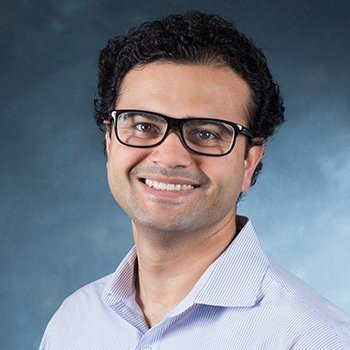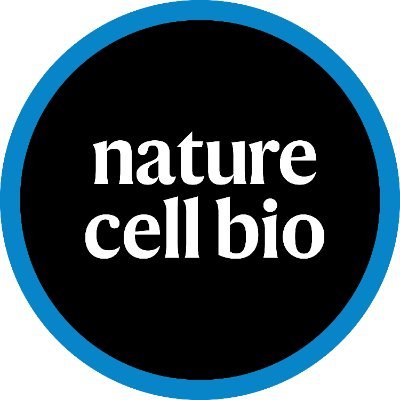
Shixian Lin
@Linlab_ZJU
Followers
393
Following
463
Media
4
Statuses
112
Chemical Biologist and Synthetic Biologist; Associate Professor at Life Sciences Institute Zhejiang University
Hangzhou
Joined November 2015
It took 7.5 years, but my first lab project is officially out! We develop an approach to identify the liver nascent proteome, especially membrane proteins, under various pathophysiological conditions, revealing key regulators involved in hepatic steatosis. https://t.co/8T27Hw3g9a
1
2
23
Thank you🥰. Having the opportunity to publish in @ACSCentSci is a wonderful and very memorable experience.
The Lin lab (@Linlab_ZJU) developed a virtual noncanonical amino acid (ncAA) screener that allows evaluation of the genetic encodability of designed ncAAs prior to chemical synthesis. NEW #ASAP #ZhejiangUniversity Read: https://t.co/ChSOJhm7rr
1
0
21
Check out our work in @ACSCentSci. We have developed a virtual noncanonical amino acid (ncAA) screener that allows evaluation of the genetic encodability of designed ncAAs prior to chemical synthesis.
pubs.acs.org
Genetic encoding of noncanonical amino acids (ncAAs) with desired functionalities is an invaluable tool for the study of biological processes and the development of therapeutic drugs. However,...
0
2
31
It's great to see this review online @ACSChemRev. Many thanks to the collaborators, reviewers, and organizers of this synthetic biology review @syntheticbiology. We hope that this review will be useful for researchers interested in protein lipidation. https://t.co/peGDbBftO6
pubs.acs.org
Protein lipidation dramatically affects protein structure, localization, and trafficking via remodeling protein–membrane and protein–protein interactions through hydrophobic lipid moieties. Underst...
0
2
20
Thank you for covering our study.🥰 @TheScientistLLC @KLNahas
The 20 amino acids that make up proteins produce an incalculable variety of these biomolecules, but synthetic biologists looking to push the limits of protein diversity have developed a technique to incorporate unusual amino acids into proteins. https://t.co/6wW9AdwrPY
0
1
11
Terrific idea that can activate different reactive probes with tunable radical half-lives corresponding to different distance scales.
Thrilled to share our MultiMap paper is now published online on Science. @ScienceMagazine With @realJimWells, we present a multiscale photocatalytic proximity labeling platform for interactome profiling.
2
0
4
Rare codon recoding (RCR) complements blank codon suppression methods and paves the way for the efficient incorporation of more than 300 ncAAs with diverse functions and applications. @ScienceMagazine @ZJU_China
0
1
13
Rare codon recoding (RCR) enables the synthesis of non-canonical amino acids (ncAAs) in mammalian cells with a translation efficiency close to that of natural proteins. @ScienceMagazine @ZJU_China
https://t.co/rglEh3QeB4
science.org
The ability to genetically encode noncanonical amino acids (ncAAs) has empowered proteins with improved or previously unknown properties. However, existing strategies in mammalian cells rely on the...
1
8
21
🔊Check out our work in @ScienceMagazine. We identify a new weak point (TCG codon) in the codon table of mammalian cells and recode it into non-canonical amino acids (ncAAs) with impressive efficiency and selectivity. This strategy, rare codon recoding (RCR), is very different!
7
63
337
Well Deserved! Huge Congratulations!
Congratulations to Prof. Ashraf Birk for winning the “European Peptide Society's LEONIDAS ZERVAS AWARD 2024”! @AshrafBrik
0
0
2
Genetically encoding negatively charged lysine PTMs succinylation/glutarylation and studying their funcional roles! Great team effort by first authors @ML_Jokisch and @Maria_Weyh! Congrats @Maria_Weyh @ML_Jokisch @MaxFottner and Anh! 🥳🤩🙌👨🔬🧑🔬 @klanglab
https://t.co/CKzQi1lavS
8
34
166
Phenomenal new reactions, new oxaziridine reagents, and their application in the discovery of functional tryptophan interactions. 👍👍👏👏 @christhechang @Toste_Group
https://t.co/AaP4uwmnXo
nature.com
Nature - Global profiling of hyper-reactive tryptophan sites across whole proteomes using tryptophan chemical ligation by cyclization (Trp-CLiC) reveals a systematic map of tryptophan residues that...
1
6
44
This chemical activation of a genetically encoded caged-tryptophan (Trp-CAGE) strategy enables precise activation of the Trp of interest underlying diverse important molecular interactions, such as hydrophobic interactions, polar interactions, and π interactions. @NatureChemistry
1
1
32
Thrilled to share our collaboration work with Peng and @fanxy03 on @NatureChemistry. With a new bioorthogonal reaction, the chimeric translation system, and a new computer algorithm, we can cage and decage Trp on virtually any protein in living cells.
1
12
77
Happy to share that I have been promoted to Associate Professor with tenure. My sincere thanks to all the amazing colleagues, trainees, mentors, and friends over the years.❤️
6
0
33
We got a story, and it’s electric! 🔌⚡️ https://t.co/K7w6MTOWzc Can electrocatalysis be used to precisely modify a protein? Yes! Happy to finally share this work led by @conor_loynd and @SinghaSoumya. A 🧵 #ProteinElectrochemistry #NSFfunded
9
22
84
🎁Interested in reading more about the study? Here is the N&Vs article written by Jennifer J. Kohler and Mary W. N. Burns: 👉🏻 https://t.co/mclJUUZmGW
https://t.co/TLm9ID9Z78
0
1
7
Our first study of the biological function of protein #OGlcNAcylation #PhaseSeparation, with more interesting findings coming soon. 🤞🤞
💫NEW: Chen et al. report that the #YTHDF #m6A-RNA-binding protein family can be differentially regulated by #OGlcNAcylation, leading to differential regulation of the YTHDF proteins on translation and #PhaseSeparation. 👉🏿 https://t.co/xRYlwiXG45
https://t.co/E4nvr6LeW2
0
1
13
It is our great pleasure to announce that Christopher Chang @ChristheChang has joined @PrincetonChem as the Edward and Virginia Taylor Professor of Bioorganic Chemistry. Welcome, Chris, we are thrilled to have you! Read here: https://t.co/oLdRJPoqNl
12
17
331
It is our great pleasure to announce that Michelle Chang has joined @PrincetonChem as the A. Barton Hepburn Professor of Chemistry. Welcome, Michelle, we are thrilled to have you. Read here: https://t.co/b9RKbluCnC
2
26
366











